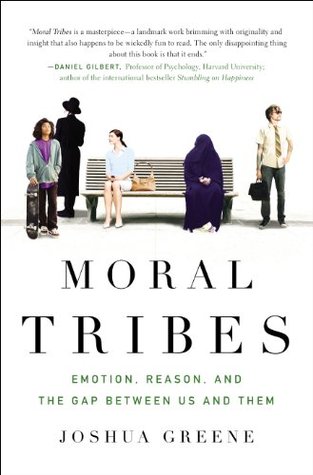More on this book
Community
Kindle Notes & Highlights
Read between
November 29 - December 22, 2017
tribalism, the (often unapologetic) favoring of in-group members over out-group members.
As Steven Pinker explains in The Better Angels of Our Natures, human violence has declined dramatically over recent millennia, centuries, and decades—a trend Pinker attributes to profound, culturally driven changes in how we think, feel, and organize our societies. These changes include shifts toward democratic governance, states with legal monopolies on the use of force, entertainment that fosters empathy, legal rights for the vulnerable, science as a source of verifiable knowledge, and mutually advantageous commerce.
people living in more market-integrated societies, rather than being hopelessly greedy, tend to be more altruistic toward strangers and more adept at cooperating with them.
we in the United States have ongoing debates over taxes, healthcare, immigration, affirmative action, abortion, end-of-life issues, stem cell research, capital punishment, gay rights, the teaching of evolution in public schools, gun control, animal rights, environmental regulation, and the regulation of the financial industry.
suppose that a utilitarian doctor can save them by kidnapping one person, anesthetizing him, removing his various organs, and distributing them to the other five people. That would seem to produce the greatest good. Do you think that would be right?
Farha Crystal liked this
A short-term effect of citalopram is the enhancement of emotional reactivity in the amygdala and the VMPFC, among other regions.
Emotions, as automatic processes, are devices for achieving behavioral efficiency.
reason cannot produce good decisions without some kind of emotional input, however indirect.
we’re going to have to find our own, unnatural solution: what I’ve called a metamorality, a higher-level moral system that adjudicates among competing tribal moralities,
From a utilitarian perspective, it’s not that happiness beats out the other values on the list. Happiness, properly understood, encompasses the other values. Happiness is the ur-value, the Higgs boson of normativity, the value that gives other values their value.
If happiness is the one and only ultimate value, then how can values ever conflict?)
More important, our moral alarm systems see no difference between self-serving murder and saving a million lives at the cost of one. It’s a mistake to grant these gizmos veto power in our search for a universal moral philosophy.
Our System One (automatic) is an evolutionary kludge, but that doesn't mean the similar conclusion reached by our System Two (manual) must be discarded.
This experiment shows that people have a very hard time thinking clearly about utility.
But when there’s controversy, when whole tribes disagree, then you know that you’re on the new pastures, dealing with Us versus Them. And that’s when it’s time to shift into manual mode. Why? Because when tribes disagree, it’s almost always because their automatic settings say different things, because their emotional moral compasses point in opposite directions. Here we can’t get by with common sense, because our common sense is not as common as we think.
But heightened emotions also means that identity is threatened, so identity-protective motivated thinking kicks in.
Farha Crystal liked this
anterior cingulate cortex (ACC).
According to the conflict-monitoring theory, the ACC detects that the brain has been firing up two incompatible behaviors and then sends a wake-up signal to the DLPFC, the seat of manual mode, which can, like a higher court, resolve the conflict.
And recall that when we evaluate evidence, our biases creep in unconsciously.
In a brilliant set of experiments, Philip Fernbach, Todd Rogers, Craig Fox, and Steven Sloman
In the early 1970s, Donald Dutton and Arthur Aron sent an attractive female experimenter to intercept men crossing two different bridges in a park in British Columbia.
In another classic experiment, Richard Nisbett and Timothy Wilson asked people to choose one of several pairs of panty hose displayed in a row.
claims about what will or won’t promote the greater good, unlike claims about rights, are ultimately accountable to evidence.
That doesn't pass the sniff test: evidence is interpreted; it doesn't stand aside and above reasoning. There is no "appeal to evidence", only individual evaluation of evidence.
From a pro-life perspective, the only questionable part of Mourdock’s position should be his willingness to allow abortion to save a mother’s life. Would it be okay to kill a three-year-old if, somehow, that were the only way to save her mother?
Poor reasoning: the life of a fetus is contingent on the life of the mother, unless the mother's"death" could still permit her body to function as a zombie incubator. The charitable understanding of Mourdock's conclusion is that when the choice is between the death of both versus the death of only the "unborn child", the latter is the correct, if tragic, choice.
These three schools of thought are, essentially, three different ways for a manual mode to make sense of the automatic settings with which it is housed.
Nonsense. We can think beyond the origins of the ideas. Example: when we try to write software that instantiates ethics, do the crude biological origins of those ideas matter?


